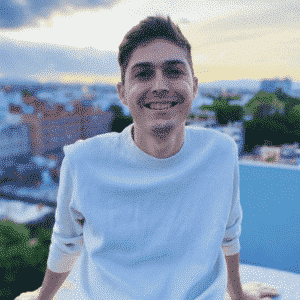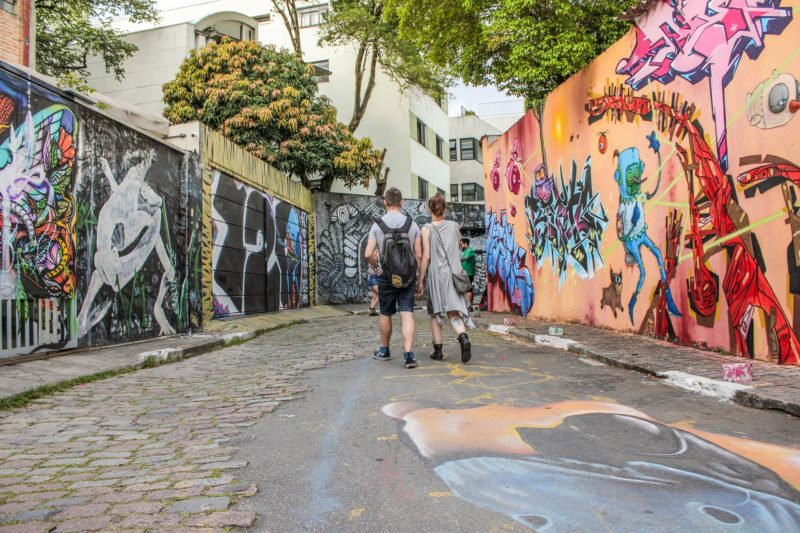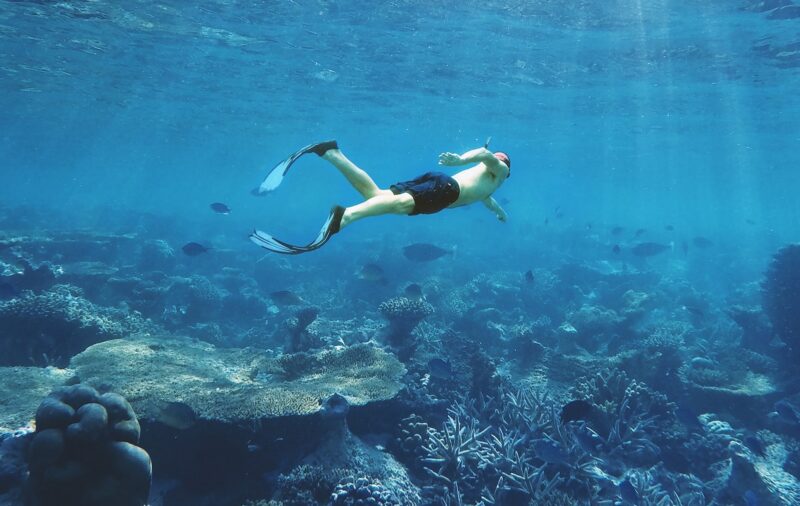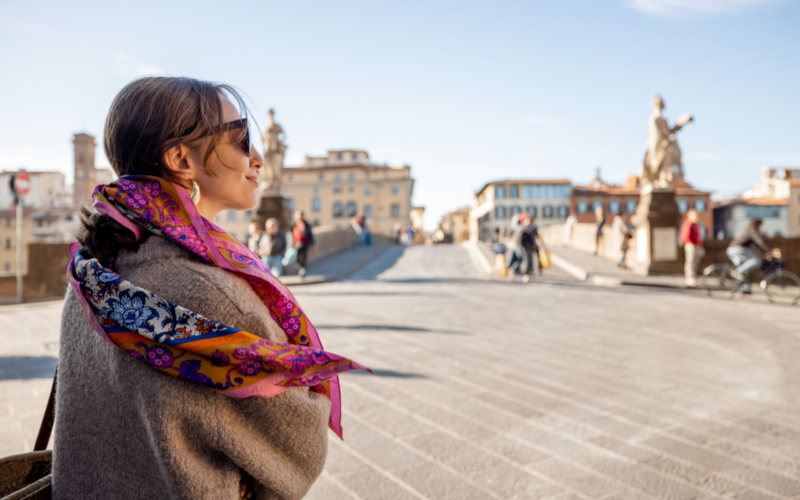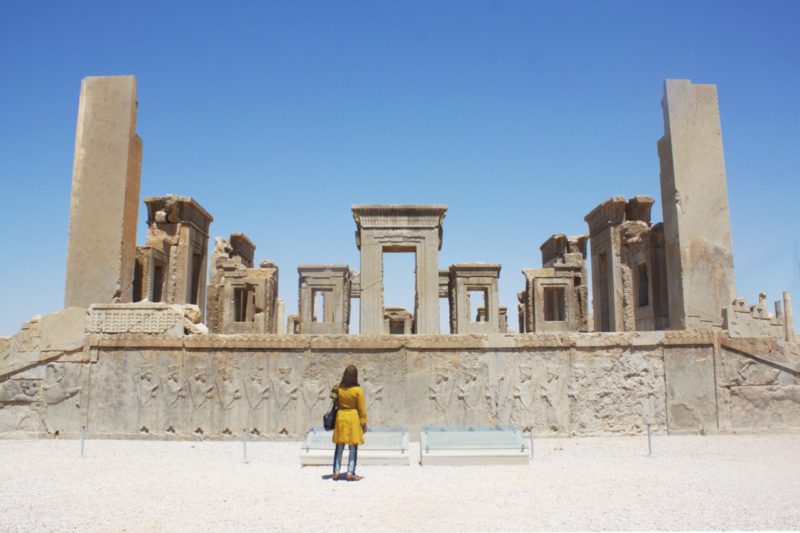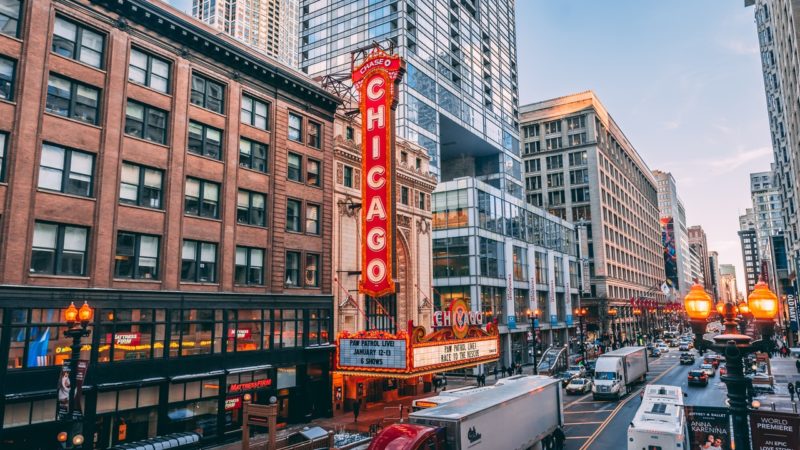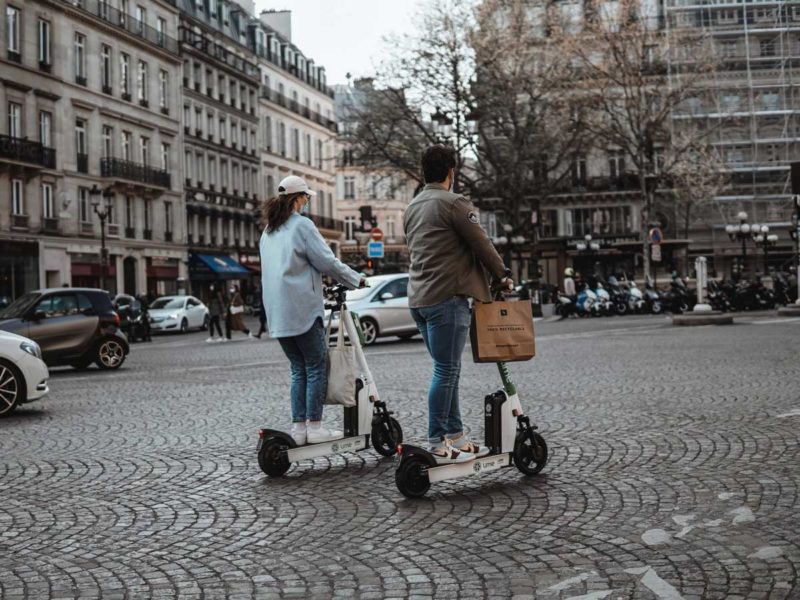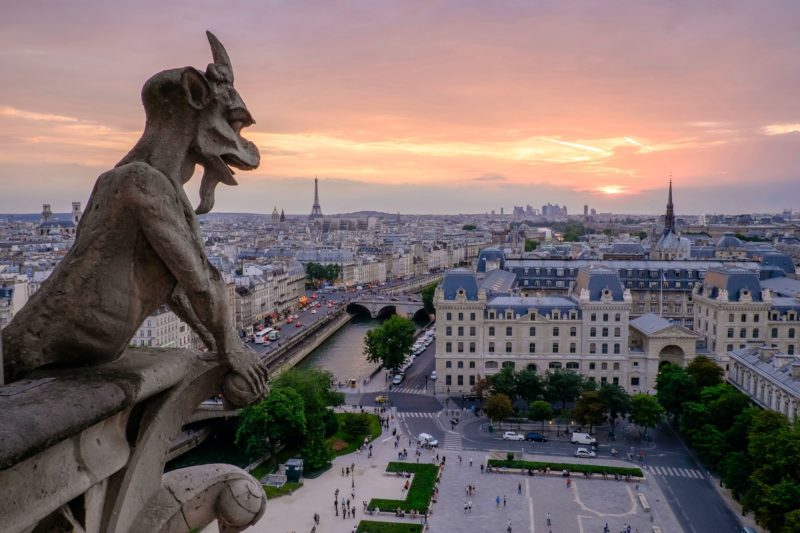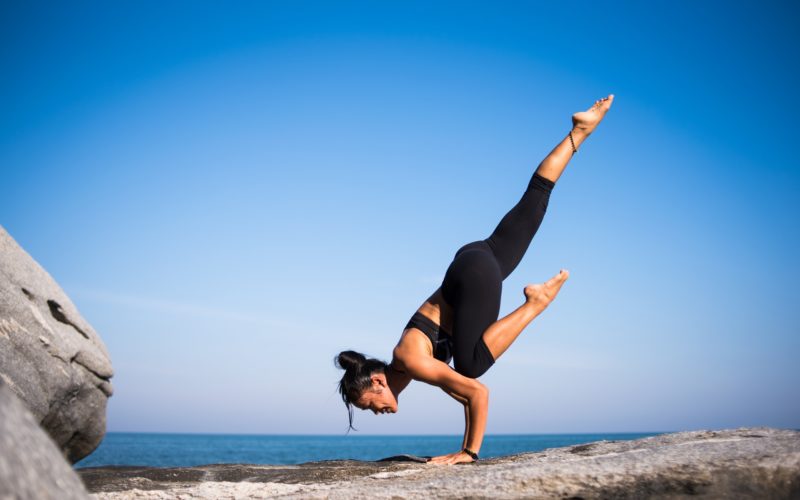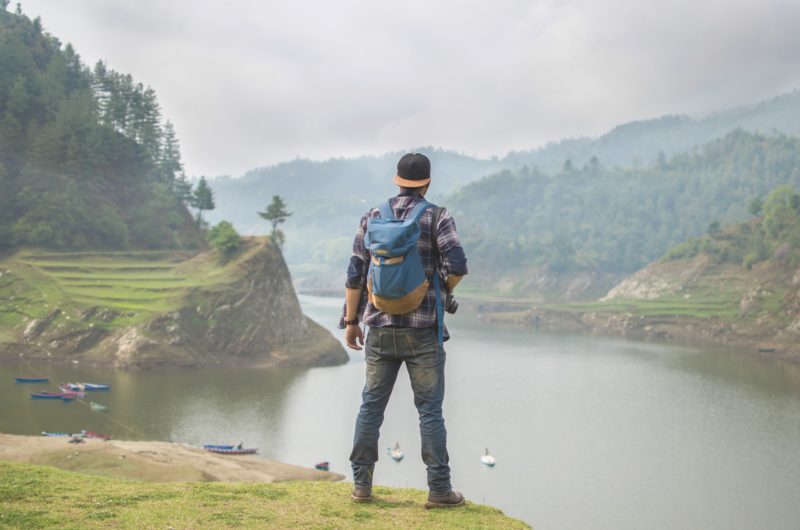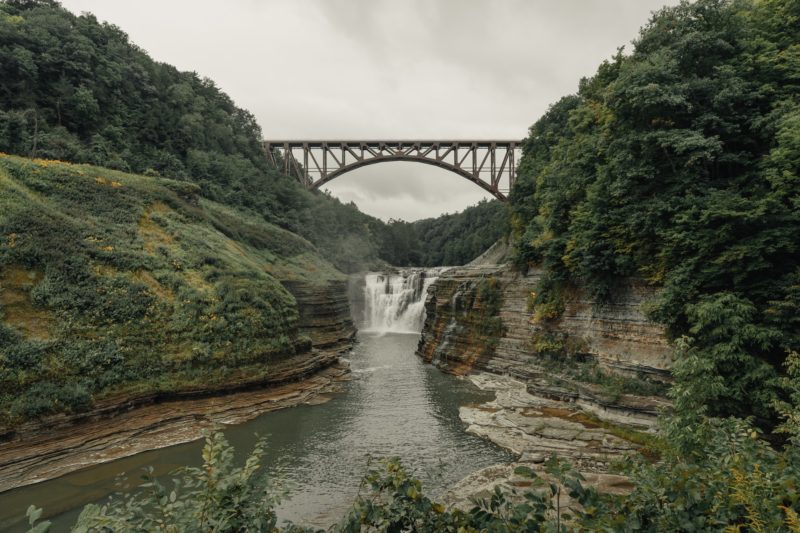The popularity of remote work, longterm travel, and the digital nomad lifestyle continues to grow — and that growth shows no signs of slowing down. But what does that growth mean for the local communities in which digital nomads work? How can these nomads ensure that they participate in positive impact travel?
Tarek Kholoussy is the founder of Nomads Giving Back!, a social impact organization that informs, inspires, and empowers people who’d like to make a positive contribution while traveling and working abroad. We sat down with Kholoussy to discuss the mission of Nomads Giving Back, his own personal journey, and a wide range of other topics including volunteer vacations, social entrepreneurship, the nomad lifestyle, and how we can all travel for good.
How does Nomads Giving Back inform, inspire, or empower travelers and digital nomads to make a positive impact on the communities they visit?
Number one, we feel like face to face connections are essential. Especially for people like you and I who are spending a lot of time at the laptop. How funny is it when you go to these coworking spaces and cafes that are bustling with people, and nobody’s talking with each other. We’re craving the company of these people but we’re not actually integrating with them. One thing that’s important to me is to bring people together. We’ve been doing that through events, but also through tours and trips.
Everything that we do has one thing in common: a social impact theme. Some of it can be as simple as a meetup where we set the tone of the conversation as being about social impact. We’ll have an open mic session where, for example, we pass you the mic and you can talk about Hidden Lemur, and someone can be like “Oh I know this social cause, and I can connect you!”
We’ve also had many impact panel discussions. We’ve had probably close to 60 or 70 people getting to hear four social impact leaders talk about their work. They’re all about how to give back locally and abroad, and they’re all doing it in a different way. We’re helping to give them a platform to get more exposure.
I think if we can serve as a bridge between locals and foreigners around social impact, that would be a dream come true. There’s so much value just there. Despite all this technology, I have not seen this problem solved. The niche that we’re focusing on is more on nomads and expats, especially around these co-working spaces, conferences, moving traveling groups — but it’s for everyone.
What’s really beautiful is when the locals come and they find opportunities to give back to their own communities. And they didn’t know that these opportunities existed in their own home. It’s not meant to be limited just to nomads.
How did your background influence your decision to launch Nomads Giving Back?
Out of college, I fell into the whole corporate path. I felt like I was in the passenger seat of this car, and I went to business school so I went to New York and worked in corporate.
So fast forward a dozen years, I realized “What I am doing?” I worked really hard, I did a MBA at night at NYU, and I was just so ambitious. Once I got to a point where I was like, now I have this savings account, and I got this occasional promotion and raise, and I felt happy for like a day or a week or a month. But then it was like — that doesn’t change my life.
So I started using my vacations to go to developing countries. I was really curious what people did around the world. I started going as far as I possibly could from my corporate world. Not just physical distance, I mean distant socioeconomically, culturally, religiously.
And when I did these volunteer projects, I never felt more alive, connecting with locals who seemed happier than me, as well as a lot of my professional peers that seemed like they had more purpose, more meaning, more connection with family and community, and also with my fellow foreigners who were in this impact space.

I also met a woman serendipitously in New York. I talked to her for 10 minutes. She was the epitome of my dream life. She had just come back from exploring abroad, and said that now that she’d completed her dream of exploring 100 countries, she was going to go after her second dream, to create a social enterprise. I was blown away.
Later on, I looked at the calendar and I realized I was about to be 1,000 days from turning 40. So I created these three goals around mind, body, and soul.
So I said, in the next 1,000 days before I turn 40, I want to explore 100 countries to fuel my soul, at that point I was in, like, the 60s. And then I said, to challenge and cherish my body, I want to run 25 marathons. I was also worried I’d stop running and stop being fit. And this was a newfound treasure: I was falling in love running. And the third goal was to expand my mind as well as my heart — to create a social enterprise.
And I knew that with a thousand days, that’s two and half years, that would give me enough time to see this through. For those two and a half years, everything I focused on were those three things.
So what did you take away from that thousand-day period?
The only real way to affect change is to step outside your comfort zone. I think for a lot of us that are going after these entrepreneurial ideas or creative pursuits, there’s already a foundation of inspiration, and belief, and confidence. And it’s easier to do that when you’re outside your normal environment.
I’m reading a book today called Breaking the Habit of Being Yourself. It’s all about breaking habits and patterns, because we’re programmed to think the same way. So if you step outside of that, it frees your brain to be more open to possibilities. But it’s not easy. It comes at a cost, not just financial, in every way, to leave where you’re from. And if you’re doing that, or craving to do that, that means something’s lacking. At the end of the day, many people in the western world are not getting that sense of meaning and connection and community in what they’re doing.
So I think a lot of us are after something, some purpose, some meaning. For me, exploring the world was a means to explore within.
Before Nomads Giving Back, I had two other ideas. I never launched them. But I worked on them. I invested time and some money into them.
But it ended up being the precursor. There were similar themes involved, and that helped me build my confidence, my knowledge, and belief that I could do this.
What did you encounter in your travels that informed the idea for Nomads Giving Back?
I want to make an important note. Screw the 100 countries. That’s not important. I decided to go after something that I needed to do. It’s not a competition. It’s very arbitrary. It’s way more valuable to spend a lot of time in a few places than a little time in a lot of places.
After a while, having moved pretty quickly in the beginning, I realized that I crave community. And I fell into these places like Bali, Chiang Mai, and Medellin where there are these digital nomads and expats… where it felt like more of a community. I was tired of having that one conversation 100 times — “hi my name is Tarek, I’m from New York, I do this” — again and again and again. I wanted to have 100 conversations with one person.
At these co-working places, these conferences, these events that were recurring, I found that I loved the inspiration of these people who were going after their dreams. People using their creative talents and going off the conventional path to create. And they were applying skills and making freelance income — they were go-getters! Almost like the wild west of the digital economy. I like that energy.
I also found that a lot of people were kind of saying the same thing: I’d love to connect more with locals, or give back to local communities, but I don’t know how. And I was one of those people.
I’d seen this nomadic, location-independent trend growing rapidly. And a lot of businesses catering to this community — coworking hubs, moving traveling groups. I think [these businesses] are kind of like training wheels. They’re really helping people who are in that 9-5 corporate world, that are craving change, but they might not have the confidence or the belief or know what to do to jump into the unknown and to get on that bicycle. So the training wheels give them the confidence or comfort zone to do that, which is beautiful.
But in my experience of getting off the beaten path, and traveling where I was often the only local around, in Nepal and other places, road trips in Africa, rickshaw runs in India — that’s where I really grew. And when I was giving back in those various volunteering opportunities that I’ve done, that’s where I felt the most meaningful moments in my life.
That’s where the idea for Nomads Giving Back came from. We want to inform, inspire, and empower nomads, expats, and travelers to give back to the communities that they call home away from home. We want to solve that problem of: “I want to give back but I don’t know how. I want to meet locals and feel part of the local community, but I don’t know how.” That’s really the genesis of it.
So how can Nomads Giving Back help to facilitate these deeper connections between nomads and locals and locally-run impact organizations?
We’ve done workshops and masterminds, we’ve done consulting sessions for these social causes. There’s only so much help you can give in a few hours, but they’re often great initiation points for these volunteers to match with organizations.
More recently, we’re focusing on these socially conscious day tours and overnight tours. We’re calling them impact experiences, all about having a deeper understanding of the local social challenges, how the organizations are helping them. We’ve been focusing our efforts primarily in Medellin and Bali, but we’ve had events in 8 different countries so far.
Think about it. How difficult is it as a traveler to have a meaningful connection with locals? Especially with someone who doesn’t have the opportunity to come up and meet you. There’s language barriers, there’s socioeconomic barriers, there’s cultural barriers.
What makes the difference between us doing what we’re doing, and the local person serving us our coffee? A lot of times, it hurts me to see these communities, where there’s these two bubbles. Two communities living side by side, but not living together. Foreigners hanging out with foreigners, locals hanging out with locals, and locals serving foreigners.
And we don’t have to be here. We don’t have to be in Medellin. The only reason anyone is anywhere besides their home, is usually because they’re benefiting from it. So if we’re benefiting from these communities, what are we doing to give back? What is the difference between us and the people serving us? It’s often skills and education. And the two most common ways around the world that a foreigner is empowered to make an income off their laptop, is language and digital skills. And so, people say, I want to volunteer — yeah, you can volunteer in many ways — but what if you can volunteer at your higher-skill level, which is what actually empowered you to be here, and you can share that with locals?
To learn a decent amount of English can be a game-changer economically. You can enter the tourism economy. You can enter the jobs where a certain amount of English is required. Which can be double, triple the pay. And imagine if you know digital marketing. As a nomad, you can help bridge that socioeconomic gap, and in the process, develop these meaningful connections. So, for example, we piloted a language exchange a few months ago here in Medellin.
We’re not necessarily trying to be the builder or provider of those things. There are organizations that are doing wonderful jobs, it’s just that they don’t know how to access the foreigner community. And as we’re building our following and our community, that’s the value we bring.
If you take someone, for instance, like the founder of GLOT. She has a nonprofit language exchange program and she has a very small team. She’s all about having language exchanges for the benefit of having local impact. So we can help not only the end beneficiaries, the locals, but also her and her organization. And build hopefully some revenue streams for her. That’s sustainable change. Because she’ll have better positioning to go off and help more.
We did that with our impact panel last week, whether it was featuring Tika Travel, or whether it was Blue Souls Colombia. These are local, one woman shops. They have to work other jobs to grow their social enterprises. So we basically support them, and develop mutually beneficial partnerships. Because if we want to make sustainable change, we have to be sustainable ourselves.
What advice might you have for people thinking about moving into the sustainability or nonprofit realm?
Jim Carrey has a line — I wish everyone could be rich and successful so that they know that life’s not all about being rich and successful.
He gave one of the best talks I’ve ever seen. It resonates so much with me.
If you name a country, of the 100 I’ve been to, I could tell you where I was, what I did, how I felt. But if you asked me what I did when I was working at New York Presbyterian or Goldman Sachs, it’s all a blur.
When I travel it fuels my soul, it wakes me up, it makes me feel alive.
We don’t have to reinvent the wheel. If there are people you admire and the way they live their lives, follow them. Hang out with them. Create your own tribe, your own people, because energies are contagious.
You’ve got to get curious. It takes effort. Get to know people — the Internet and social media makes it a hell of a lot more easy. There are online communities you can follow that are all about this. The nice thing about social impact oriented people, is that they want to help. So don’t be shy. Reach out to people. I’ve had people reach out and say, “Hey, do you know of any social impact opportunities in Kenya?” I say, absolutely. And I contact my personal network and then everybody wins.
So it’s about talking to the right people. What happens is it’s actually a really small world sometimes. It becomes this snowball of connections.
What makes that personal network so especially powerful in the social impact realm?
A typical for-profit organization, their mission is to achieve profits through their business model. It’s often a fixed pie, and you’re trying to get a bigger slice of the pie. But with social impact, if your end goal is to have a positive impact, to help the environment, to help animals, female entrepreneurs, poverty alleviation, whatever it may be. If your competitor does well, you win. You’re achieving your vision if they do better!
Those who are genuine about the actual end goal — they want you to succeed. It’s not a fixed pie. There’s so much help needed in this world, so the pie is always expanding. Sometimes I find myself in a situation, where if I help this organization, I may be cannibalizing financial opportunity or sustainability for our own organization. But if it’s helping them do a better job, then it’s actually helping us achieve our vision as well. So it’s a funny thing, and that doesn’t really apply to typical business.
What’s the first step an aspiring social impact entrepreneur should take?
I believe before you can have action, you need to be inspired. And before you can be inspired, you need to have information. And there’s this term called option paralysis. When there’s too many options, you might feel paralyzed on making any action. So I think what I would recommend is: whether it’s to volunteer or become a social impact entrepreneur, find what unique thing drives you. What evokes the most emotion in you when you’re thinking about the various social challenges in the world? You need to be informed on that particular challenge. And there’s so much to learn, because every social issue is so complex.
Read about the leaders, the people that really inspire you. Through that, when you see what they’re doing, if you want to emulate them, reverse engineer the process. If you see where they’re at, understand how they got to that point, whether it’s through their business model or through their personal journey, then you can almost project plan out those steps, and build towards that path.
There’s ego involved sometimes, if you want to be a founder or want to be a social entrepreneur. It’s important to check yourself and understand what exactly are you doing and why exactly do you want to do something? Maybe for some people it’s not about being the founder after all, it’s about joining an organization, small or big, and you can have the most impact on that organization using your skills, your passion, your interests.
I know that I found that I was in the passenger seat on my personal journey. Now I feel that I’m in the driver’s seat. But I have to say that being a social entrepreneur is very challenging. You have to think long-term, and you have to have resilience. To have any impact, it doesn’t happen overnight, or in one year. It’s long-term. And to have that conviction, especially when money may not be the reward at all. If you don’t have the right reasons in place, you might not be setting yourself up for success.
How can people get involved with Nomads Giving Back?
We have 20-25 teammates right now, across 6 continents, and a fast-growing list of ambassadors, (including Bianca Caruana, founder of The Altruistic Traveller.) For people that are interested in the vision, check us online, at nomadsgivingback.com, and on social media, and learn more about events we’re having, these trips, these tours, these skill-sharing programs, and also these opportunities to join our movement.
We just launched our ambassador program, which is an opportunity for people who are aligned with our vision to help spread the word about what we’re doing, but also to help us understand: what are the social causes that they care about? They can use us as a platform. We’re all about celebrating people who are doing good in the world. And we want to feature them and promote them because inspiration is contagious. That’s what our platform is all about.








